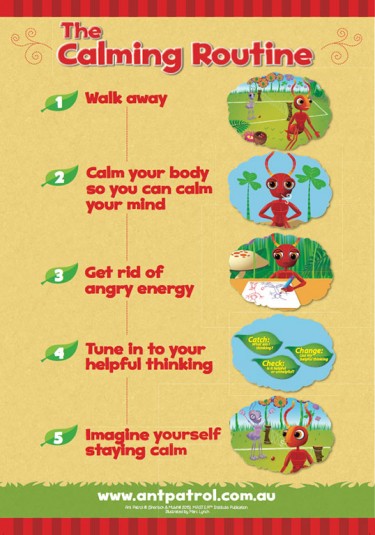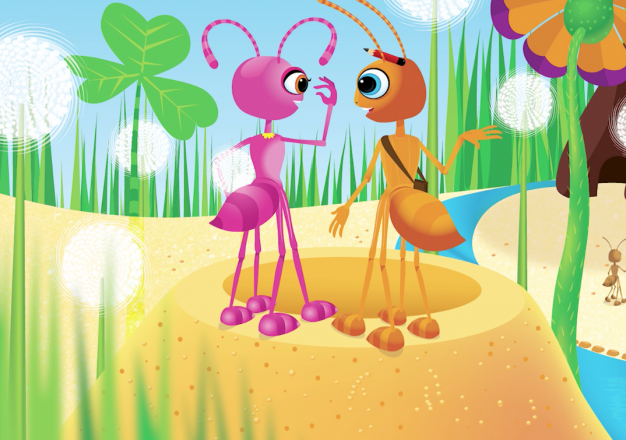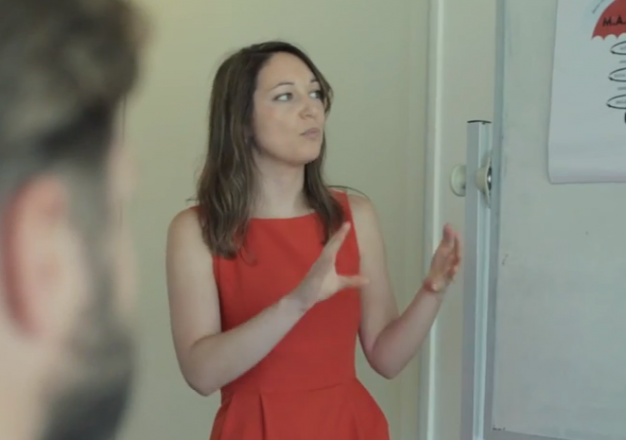Understanding and Managing Anger in Young Children

Understanding Anger
Anger is a normal human response to real, threatened or imagined situations. Everybody experiences anger from time to time. It is perfectly normal to feel this way but it is what we do with our anger that matters! Anger does not have to lead to hurting others, property or oneself.
The expression of anger covers a range of intensity including mild upset through to explosive rage. If managed well, anger can be constructive in that it lets us know there is a problem and that we need to take calm action to fix it. Children and adults alike experience difficulty managing intense feelings of anger. In these moments we may feel and act at the same time and not always think about the consequences of our angry actions. Feeling and acting at the same time or ‘tantruming’ is more commonly seen in younger children, as they may not distinguish the difference between feeling angry and acting angry. Young children’s understanding of the world of emotions is developing and they may not have the language skills to express complex emotions. Their bodies, however, do this very well!
So what causes anger?
- Anger is a response to frustration when needs are not being met (e.g. ‘hungry cranky’ or ‘tired cranky’, or expression of exasperated frustration at not being listened to and heard!).
- When anger is used as a way of getting what we want it is called instrumental anger (e.g. the young child tantruming in public for a desired toy or sweet)
- Anger can also be the release of pent up emotions (e.g. angry outbursts over seemingly trivial matters at the end of a challenging school or work day).
The Experience of Anger – Body, Mind and Action
The experience of anger can be described in terms of three components: body clues, thoughts, and behaviour.
Anger is experienced physically in the body. Interestingly, a lot of the emotion we feel actually begins in the body. We may be aware of our body signals before we become aware of our thinking. Our body signals act like a personal alarm, alerting us to a problem and preparing our body for action. The physical rush of anger may be felt in the body as pounding heart, tight jaw, clenched fists, fast breathing, tense body, or flushed face.
The thinking component refers to the thoughts that fuel our anger. There are certain types of thinking patterns that can fuel anger. The content of these thoughts typically involves some type of overgeneralisation (“I never get to have a go” / “She always goes first); blaming rather than taking responsibility for one’s actions (It’s always someone else’s fault); making things out to be worse than they really are (“This is terrible, horrible, no good, and very bad”); jumping to conclusions (assuming others have intentionally upset or ignored you); and collecting straws (letting small irritations build until you reach the final straw and explode often over something relatively minor).
Finally, the behavioural component refers to the way we behave when we are angry. Emotionally reactive people typically act in the ‘heat of the moment’ and this often involves unfriendly words, feet or hands.
Anger Management Strategies
Wise Parent Behaviours for Dealing with ‘Tantrums’:
- Defuse anger by connecting with your child’s emotion. “I can see you are very upset because you got called out. I understand how frustrating that must feel. Let’s calm and get ready for the next game.”
- Remain mindful of your own emotional responses. Maintain a high degree of rational calm and a low degree of emotionality.
- Avoid confrontational language (e.g. “stop being a bad sport / stop acting like a baby”).
- Use a disarming technique for hurtful words -“I’m sorry you feel the need to say hurtful things because I really love you very much.”
Parent Tips for Teaching Children to Calm
Parents are encouraged to set up a special calming place within their home. This is a positive setting where your child can take time to calm. It provides time and space to think about safe ways to manage strong emotion.
Children may not understand the changes that occur in their body when feeling angry. They may have difficulty identifying and labelling their emotions. Parents can help their child identify the first signs of anger in describing ‘what they see’, ‘what they hear’, and ‘what they understand’. For example, ‘John, I see your tight body, I hear your loud voice, I understand you are upset’.
Encourage your child to walk away and disengage from the ‘heat of the moment’. If your child stays in the angry situation s/he may act unwisely (use unfriendly words or actions).
It is very difficult to think in calm ways if the body remains in a heightened state of angry energy. Deep belly breathing calms the body to help the child think clearly before acting. Encourage your child to breathe slowly in through the nose and slowly out through the mouth, and to do this at the first sign of emotional arousal.
Engage your child in a distracting activity that is safe and easy. The angry energy of unfriendly words and actions is channelled into safe activity. This helps your child to calm more readily before re-entering play. Activities that are helpful in getting rid of angry energy may include ‘angry scribbling’, drumming, jumping on the trampoline, throwing a ball against a wall, reading a book, or listening to calming music.
Remember, when your child is fired up s/he will not be ready to discuss the situation that angered her/him. Wait until your child has completely calmed before entering into discussion.
About the MASTER Institute
MASTER provides services, resources and guidance for parents, teachers and allied health professionals in supporting the social and emotional wellbeing of young children. Dr Deberea Sherlock and Aisling Mulvihill founded the MASTER Institute in 2012. From the combined professions of educational and developmental psychology and speech-language pathology, they bring to MASTER over 20 years of collective specialised experience in the area of children’s social and emotional development, and a deep understanding of children and the challenges they face. Their work is strongly guided by a desire to engage children through creative learning and the wider value of working collaboratively with families and schools.






